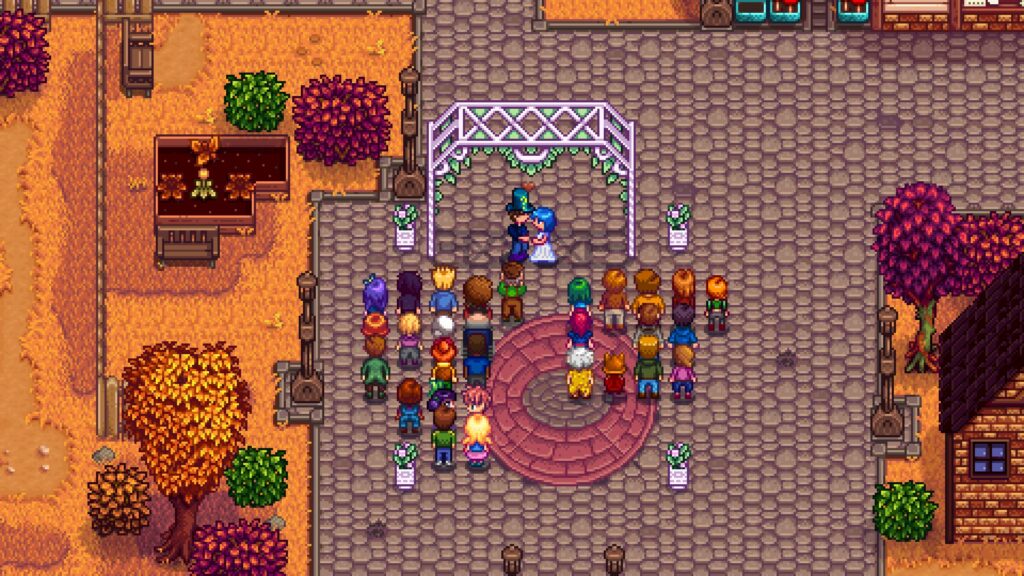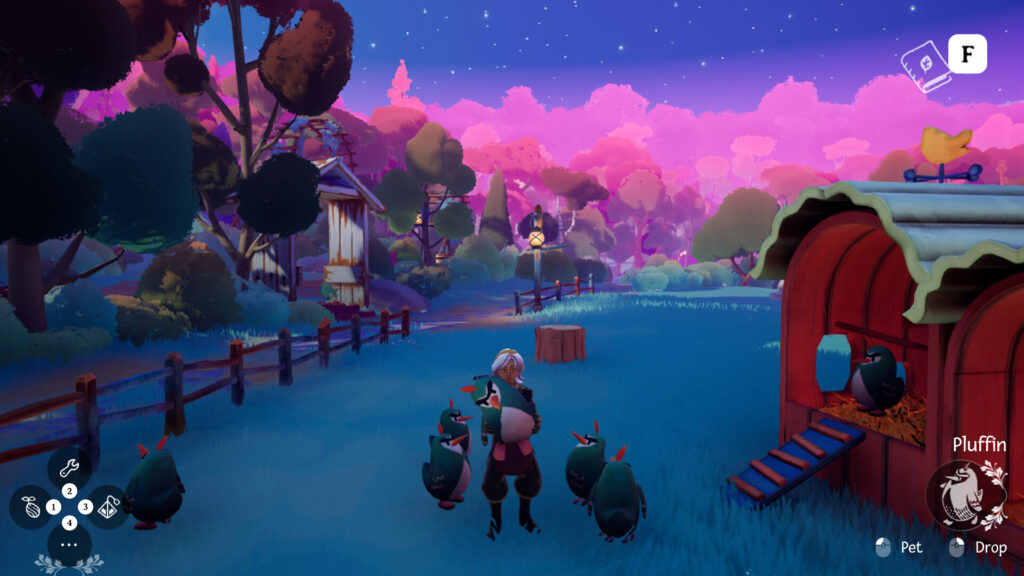Writing my next book on the cozy/wholesome genres, I had a chance to interview Matthew Taylor who founded Wholesome Direct about the showcase, what makes a game wholesome, and why these kinds of games are needed now more than ever.
1. From the outside, it’s easy to assume that if a game is meant to be for casual fans then it must also be cozy/wholesome, but in your opinion, what needs to be in a game, either mechanically, aesthetically, or both, that would qualify it as wholesome?
I like to think of wholesome games as hopeful. That’s actually why we chose to use the term wholesome instead of cozy: a wholesome game can involve plenty of hardship or sadness, as long as there’s a reason to be hopeful.
2. For people who have been following the game industry for years, there have been multiple studies as to the benefits and downsides of games, but with wholesome games in particular and for people reading this, are there any unique benefits or reasons for playing wholesome games that you wouldn’t find in a traditional game?
I appreciate the question, and I’m sure many players would be happy to speak about what they get emotionally from playing wholesome games, but I personally don’t feel qualified to comment on any mental health benefits.
3. Game length is always a tricky topic to discuss and with cozy games, there is a strong argument for long or short examples if you want to focus on something that can be played daily or telling a specific story, respectively. Do you think there is a sweet spot for length for cozy games?
Not at all. My favorite wholesome game of all time is A Short Hike, and that’s a pretty short game, especially if you don’t collect all the extras. On the other hand, folks spend hundreds of hours in games like Stardew Valley or Animal Crossing. Ultimately, games are art, and although some players may judge a game’s value based on its length, I don’t think it’s a factor in its quality, regardless of genre.
4. Do you make any distinctions between mechanical genres i.e. roguelikes, FPS, etc. and “vibes” genres when it comes to defining a game as wholesome?
Thinking of games as art, it makes more sense to me to categorize them by how they make you feel, rather than how you literally play them. Pokémon Snap and Halo are both first-person shooters, but they elicit such different emotions, and to me, emotion is the most important aspect when we talk about art.

5. And regarding the previous question, part of the progression curve seen in traditional or more intensive games is the push and pull of learning the mechanics, things escalating, etc. But with cozy/wholesome games that are meant to be more low or even no stakes to the gameplay, what do you feel is the motivation to keep playing these games?
As you alluded to, many wholesome games center on player progression and collection, which can be seen as a kind of escalation, even if the physical challenge doesn’t increase. Beyond that, I think players are often motivated by the desire to create or immerse themselves in a world or see a story through to the end.
6. Keeping with the idea of having low stakes, when it comes to combat, does fighting have a place in cozy/wholesome games as either a required system, or as something that can be skipped or ignored at the player’s choosing (such as Stardew Valley’s dungeon elements).
I think it matters who you’re fighting, why, and whether it’s optional. There’s a bit in our official FAQ that speaks to this: “If a game is violent, but that violence is about overthrowing an oppressor, is it unwholesome? We say no!” Games where combat feels shoehorned in just because it’s a familiar mechanic are a little more boring to me, but many players enjoy oscillating between action-focused gameplay and something more chill and low-stakes. Stardew is a good example.
7. From your point of view, how has both wholesome games and the wholesome direct grown over the years?
Just looking at the numbers, Wholesome Direct viewership has grown every year, and so has the number of submissions we receive. When we started, there were no Steam events focused on this genre, no cozy-focused publishers, no showcases, etc. A lot has changed and grown in a very short time.
8. For developers reading this, any specific design or storytelling tips you would like to share for someone wanting to make a wholesome game?
Good art is personal, even if it’s expressed through abstraction or metaphor. Tell the story you want to tell, and let every design decision support that. That’s my honest, boring answer. For those more interested in marketing or commercial art, the lesson from wholesome games (or any niche) is to consider your audience early and learn from them. What are they playing right now, and what do they enjoy about it? Be empathetic, because if you can’t genuinely relate to your player, they’ll see right through it.
9. Is there a distinguishing point between cozy and wholesome games? And if so, what would that be in your opinion?
For most players, I don’t think there’s a big difference between the two, and that’s OK. From my perspective, wholesome is a bit broader artistically. A wholesome experience might include dark or troubling situations but with hope or the potential to make a positive impact. Cozy, on the other hand, is a more specific and deeply personal feeling. I’ve seen plenty of people describe games as cozy that don’t feel that way to me, because the feeling comes from more than just the game—it’s tied to personal associations and context.

10. And finally, for any parents or nongamers who may be reading either the interview or my book, do you have any final points or thoughts about cozy/wholesome games that you would like to share?
Many people see wholesome games as a sudden response to an increasingly unstable, violent world. But if you talk to players, you’ll quickly learn that many of us have always enjoyed these kinds of experiences and wanted more. Only recently, with the rise of indie games, have those players truly been catered to. And slowly but surely, larger studios and publishers are starting to take note.
For more about wholesome games, you can check out the Wholesome Games website, and about designing them, my book on it when it is released.

